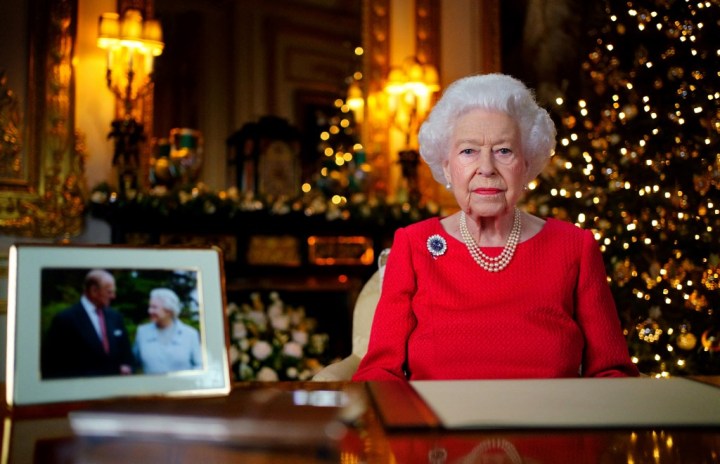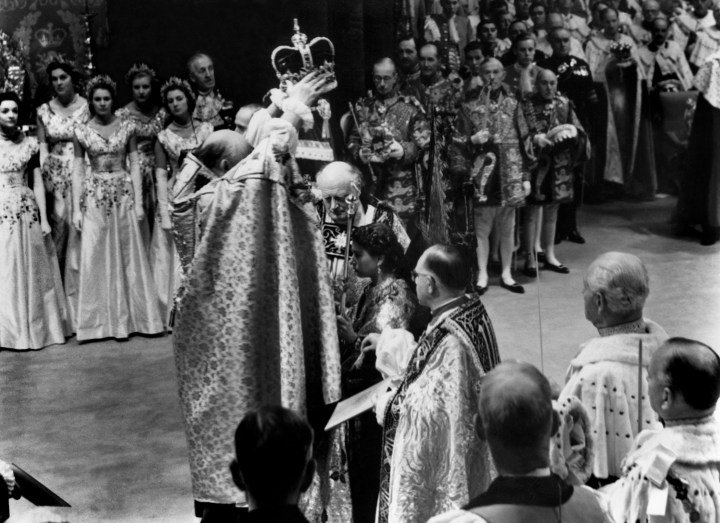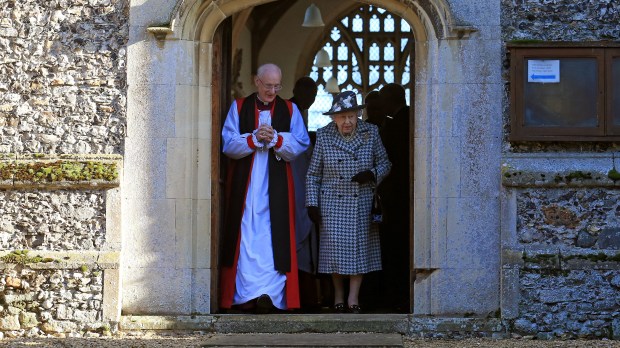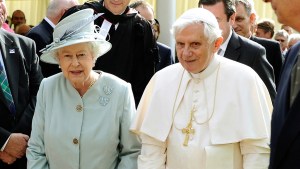For Elizabeth II’s subjects, since the beginning of her reign in 1952 the queen’s Christmas message has been a particularly solemn event. Like Catholics who follow the broadcast of the pope’s urbi et orbi blessing, millions of British people never miss this moment of television to listen with emotion to their queen and head of the Church of England.
In 2017, The Guardian’s Catherine Pepinster analyzed the queen’s “deliberate turn towards religion” in her Christmas speeches, which highlighted some key quotes we’d like to share below, along with a few others that reflect her faith and some reflections on their significance. They are particularly notable because they reflect the queen’s personal thoughts in a special way.
Initially broadcast on radio, then televised in 1957, the queen’s speech is the only ceremony where she addresses the nation “without the government scripting it.”
Indeed, as The Guardian points out, the only people who always had an eye on the text the queen was preparing were her private secretary, the royal family’s appointed theological advisor and, of course, her husband, Prince Philip, who died on April 9, 2021. Why this exception? Probably because her reflections on the importance of the Christian faith in her life have an obvious personal dimension.

With her accession to the throne, the queen also became the supreme governor of the Church of England. Like all British monarchs, Elizabeth II was crowned and consecrated by the Archbishop of Canterbury in a ceremony that has its origins in the coronation of the kings of France. As such, she is “Queen by the grace of God, defender of the faith” (Dei Gratia Regina Fidei Defensor).
Many religious celebrations shaped her public life as “supreme ruler of the Church of England,” but it was her annual Christmas message that clearly revealed her relationship to God and her personal faith. This connection was visible even before she was crowned:
I want to ask you all, whatever your religion may be, to pray for me on that day—to pray that God may give me wisdom and strength to carry out the solemn promises I shall be making, and that I may faithfully serve Him and you, all the days of my life.
She made this prayer request in her first Christmas message in 1952, six months before her coronation on June 2, 1953, at Westminster Abbey in London.

Faith, “the anchor of her life”
Her Christmas speeches year after year reveal a certain evolution in the way she evokes her personal faith and Christian values such as forgiveness, reconciliation, love, and her sense of service.
During the last 22 years of her reign, as The Guardian highlights in its 2017 article, her messages have taken on a different, almost intimate tone. The queen likes to speak of her faith as “the anchor in her life.” Indeed, as Pepinster points out, since the year 2000, Elizabeth II has decided to devote her Christmas message to the story of the life and teaching of Christ:
To many of us our beliefs are of fundamental importance. For me the teachings of Christ and my own personal accountability before God provide a framework in which I try to lead my life. I, like so many of you, have drawn great comfort in difficult times from Christ’s words and example.
Her overtly Christian discourse took on an even more personal tone in 2014:
For me, the life of Jesus Christ, the Prince of Peace, whose birth we celebrate today, is an inspiration and an anchor in my life. A role-model of reconciliation and forgiveness, he stretched out his hands in love, acceptance and healing. Christ’s example has taught me to seek to respect and value all people of whatever faith or none.
Two years later, the queen explained through personal testimony how she finds in Christ the “guiding light” of her life.
… [B]illions of people now follow his teaching and find in him the guiding light for their lives. I am one of them because Christ’s example helps me see the value of doing small things with great love, whoever does them and whatever they themselves believe.
Finally in 2020, on Christmas Eve, from Windsor Castle, where she isolated herself with Prince Philip because of the COVID-19 pandemic, she promised her prayers after evoking the parable of the Good Samaritan:
Of course, for many, this time of year will be tinged with sadness: some mourning the loss of those dear to them, and others missing friends and family-members distanced for safety, when all they’d really want for Christmas is a simple hug or a squeeze of the hand. If you are among them, you are not alone, and let me assure you of my thoughts and prayers.
Her personal credo
What occasioned this increased focus on faith in her annual Christmas message?
The Guardian’s reporter Pepinster says that, according to some royal observers, it was clearly on the 2,000th anniversary of the birth of Christ that the queen decided to speak more openly about her faith.
Others, she says, see it as the hand of George Carey, then Archbishop of Canterbury.
For Ian Bradley, professor of history at the University of St. Andrews and author of God Save the Queen – The Spiritual Heart of the Monarchy, it’s more likely the direct influence of Prince Philip: “After her very personal account in 2000, she was encouraged to continue because I’m told she received 25 times more letters than usual from the public in response to that Christmas message than others, and she had huge support from the Duke of Edinburgh,” Bradley told Pepinster.
What is striking is this detail that changes: in her first message Elizabeth II asked to pray for her. In the one she gave on the eve of her platinum jubilee, she assured her subjects of her own prayers. A sign that Elizabeth II’s wisdom, sense of service, and quest for God have continued to grow and unite, making her one of the most radiant and beloved sovereigns, far beyond the United Kingdom.


